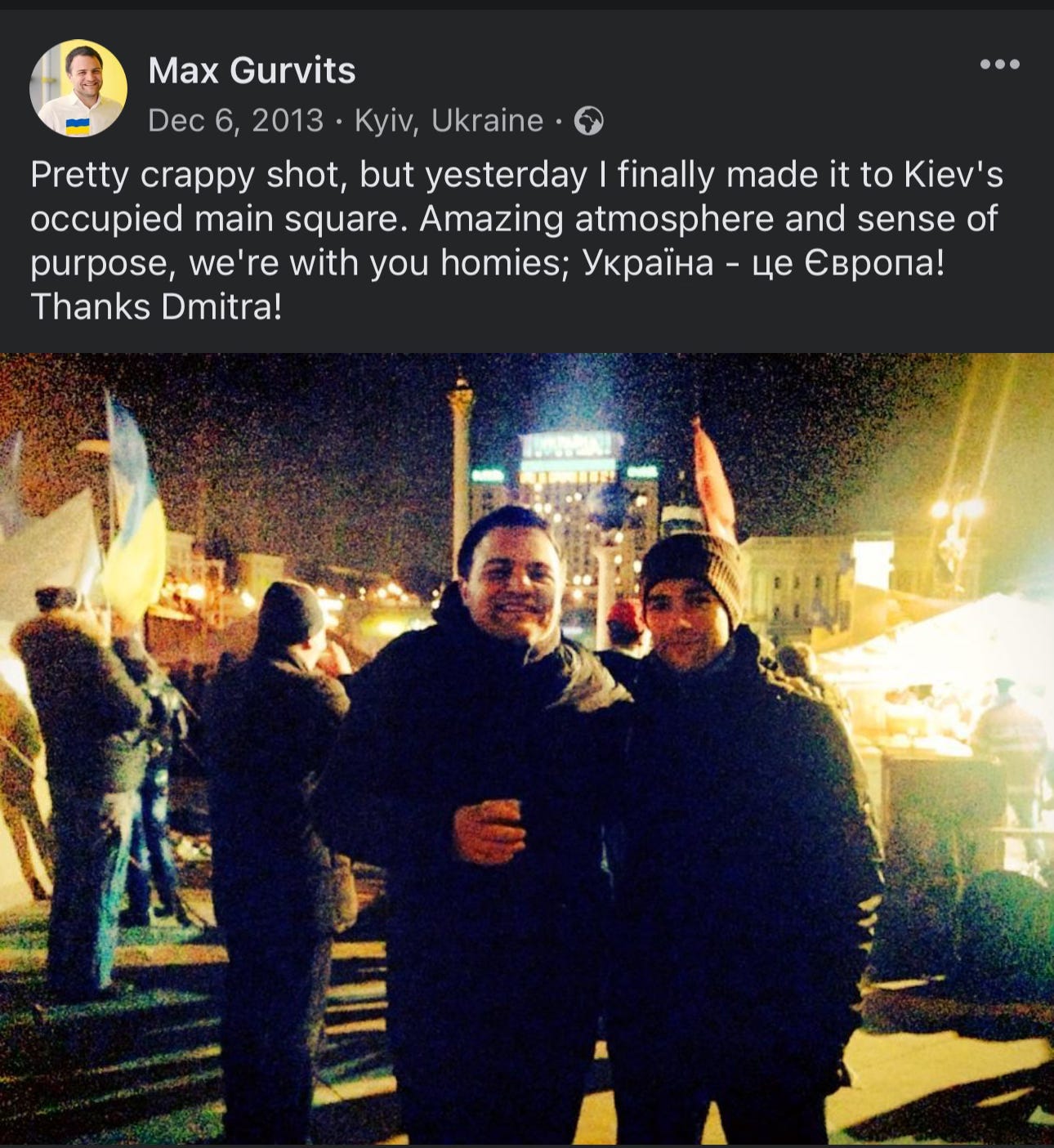Living in interesting times
How the fear-of-missing-out made place for different and event opposite feelings through the years
Happy Sunday!
I was about 12 or so, when at school our Latin teacher explained to us the meaning of the ancient Chinese saying “May you live in interesting times”, and that rather than a good wish, it is a curse. Despite this early knowledge, I have spent a big part of my younger years yearning for more meaning from my surroundings. An early believer of Woody Allen’s famous quote that “Eighty percent of success is showing up”, I often thought that the most important thing in life is to be in the right place at the right time when important things are happening.
Perhaps this is a function of growing up reading lots of history books and autobiographies in an attic room in suburban, rural Netherlands, where seemingly nothing of global significance happened in a wide radius. Perhaps also, this explains why I decided to move to Bulgaria, where I get to play a modest yet utterly fulfilling role in shaping a new and modern European society.
I got reminded of this feeling, of wanting to be where things are happening, earlier this week, when many of my Ukrainian friends reminisced about the Euromaidan protests of 2013, which lasted for two months and ended with the Revolution of Dignity in February 2014, culminating in the overthrow of the pro-Russian Yanukovych government, followed immediately by Russia’s occupation of Crimea and the start of the war in the Donbass region of Eastern Ukraine.
Those protests started exactly 10 years ago this week, and on that occasion, absolutely coincidentally, I happened to be around when history was being made. On December 3, 2013, I landed in Kyiv to take part in a venture conference, and during the next several days, I’d spend my evenings in the company of all the other conference speakers, local and foreign, on Kyiv’s main square, Maidan Nezalezhnosti, walking around the tent settlements and barricades, talking to protesters, drinking tea with them, and chanting “Україна - це Європа”, meaning “Ukraine is Europe” with thousands of others gathered there.
It was a foundational moment for me, as it kicked off my personal relationship with Ukraine, and made me an ardent supporter of Ukraine’s national cause. Looking back now, ten years later, the feelings are bittersweet. What started on the streets of Kyiv ten years ago has grown into the defining civilizational conflict of our generation. On the one hand, Ukraine has developed tremendously towards the European future it aspires to. In other European countries, we have regained our awareness about the security risks that surround us, and have become much more prepared and resilient. On the other hand, the price paid, especially by Ukraine and Ukrainians, is devastating.
I wonder now, had I known back then in December 2013, when I walked around the barricaded main square of Kyiv, looking at the thousands of happy faces, where this will end up ten years later, how I would have felt. For sure, today the memories of those days feel conflicting, painful, and even tragic.
As I grow older, I realize I care less about being where the action happens. Whether it’s a night out with my colleagues or friends or a revolution happening in a country’s main square, I much more prefer to hear the stories of “you’ll never believe what went down there” at a later point from others than witnessing them myself.
And when it comes to countries, the ability to lounge on the attic in some boring suburb reading history books seems much more advanced and sophisticated than being on a main square that the riot police was getting ready to shoot at, as it did six weeks after the cheerful nights I spent there in December 2013. On February 20 2014, 108 protesters lost their lives in a police attempt to crush the protest, the first victims in a conflict that by now has claimed over 200,000 Ukrainian lives.
I know that one day Ukraine will be free and peaceful, and that the lives lost will continue to be honored as heroes who paid the ultimate price for their country’s prosperous future. But as long as I live I will carry a burden with me for being there when their fates were being decided.
And so today I wish less for interesting times than I do for peaceful, prosperous and happy ones. Even if they’re more mundane. As Vladimir Nabokov famously quipped, the best places are where nobody knows the name of the local head of government. Instead of living in interesting times, may we live in such where we can be that negligent.


